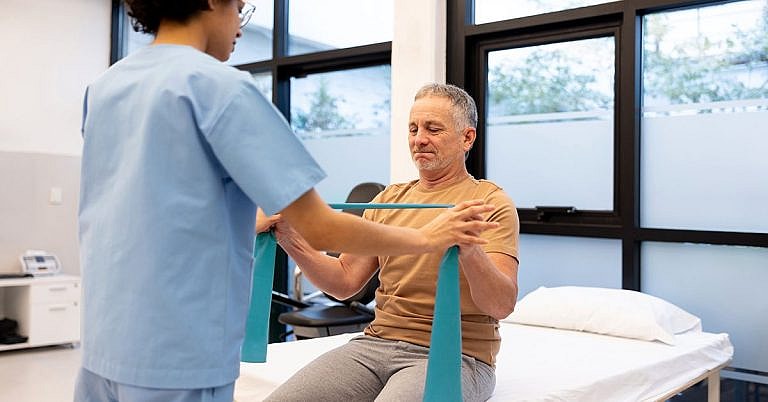What is Hypoglycemia (Unspecified)?
[trp_language language=”en_US”]
Hypoglycemia describes a low blood sugar level (hypo means low, and glycemia refers to sugar or glucose in the blood). Sugar is an important source of energy for the body. Symptoms of low blood sugar levels include headache, nervousness, shaking, concentration difficulties, sweating, and nausea. The treatment of hypoglycemia is to give sugar, whether in food or drinks or, in severe cases, in fluid directly into the blood. Most people recover well, but severe hypoglycemia can be life-threatening and requires immediate treatment.
Risks
Sugar is an important source of energy for the body and the most important fuel for the brain. The body can partially compensate for low blood sugar levels but eventually needs food in order to produce sugar quickly. Hypoglycemia can occur in anyone, though some people are more likely to have hypoglycemic episodes than others. People with diabetes who take medications to control their blood sugar levels, people who do not eat regularly, and athletes may all be at risk of having a hypoglycemic episode, as are people with medical conditions which affect their liver and pancreas. In rare instances, cancer that produces excess insulin can cause recurrent hypoglycemic episodes.
Symptoms
The typical symptoms of hypoglycemia are headache, dizziness, impaired concentration, nervousness, irritability, and uncoordinated movements. People with hypoglycemia may begin to sweat, shake and feel nauseous. They may also feel hungry. If severe hypoglycemia develops, the brain may not be able to work properly. Symptoms of severe hypoglycemia are sleepiness or coma, muscle weakness, seizures, slowed breathing, and collapse.
Diagnosis
Diagnosis is based on the symptoms and a measurement of the blood sugar level. Treatment must not be delayed by further diagnostic tests to find the underlying reason.
Treatment
The treatment of an episode of hypoglycemia is to give sugar. If the affected person is fully awake, drinking sweet drinks or eating sweets may be sufficient as therapy. Drowsy or unconscious people may need glucose solutions given intravenously, or alternatively, a glucagon injection (a hormone released by the pancreas and functions to increase glucose levels in the blood by causing the liver to convert stored glycogen into glucose).
Prevention
People who take medications to reduce blood sugar levels should learn to recognize and treat hypoglycemia. Eating regularly can help prevent episodes of hypoglycemia.
Other names for hypoglycemia
- low blood sugar
- hypoglycemia, unspecified
[/trp_language]
[trp_language language=”ar”][wp_show_posts id=””][/trp_language]
[trp_language language=”fr_FR”][wp_show_posts id=””][/trp_language]
**Question: What is Hypoglycemia (Unspecified)?**
**Answer:**
Hypoglycemia (unspecified) refers to a condition characterized by abnormally low blood sugar levels (glucose). This condition is also known as unspecified low blood sugar or unexplained low blood sugar.
**Causes:**
The exact cause of hypoglycemia (unspecified) is often unknown or challenging to determine. However, potential contributing factors include:
* **Insulin resistance:** The body’s cells become less responsive to insulin, leading to inefficient glucose uptake.
* **Excessive insulin secretion:** The pancreas releases too much insulin, which promotes excessive glucose conversion into energy or storage.
* **Certain medications:** Some diabetes medications, sulfa drugs, and alcohol can interfere with glucose metabolism.
* **Hormonal disorders:** Conditions affecting pituitary, adrenal, or thyroid glands can disrupt glucose regulation.
* **Liver disease:** Liver damage can impair glucagon production, which helps raise blood sugar levels during fasting.
**Symptoms:**
* **Mild hypoglycemia:** May cause sweating, shakiness, hunger, irritability, and difficulty concentrating.
* **Moderate hypoglycemia:** Can result in confusion, drowsiness, slurred speech, seizures, or loss of consciousness.
* **Severe hypoglycemia:** If left untreated, it can lead to coma or even death.
**Diagnosis:**
* **Blood glucose test:** Measures the glucose level in the blood
* **Other tests:** May include fasting blood glucose test, oral glucose tolerance test, and imaging studies to rule out underlying conditions.
**Treatment:**
* **Mild hypoglycemia:** Can be treated with sugary drinks, foods (e.g., candy, juice), or glucose tablets.
* **Moderate to severe hypoglycemia:** Requires immediate medical attention. Treatment may involve intravenous glucose or injections of glucagon, a hormone that raises blood sugar levels.
**Prevention:**
* **Monitor blood sugar levels regularly:** Especially if you have diabetes or are at risk for hypoglycemia.
* **Eat a balanced diet:** Include regular meals and snacks to prevent sharp fluctuations in blood sugar levels.
* **Take medications as prescribed:** Follow your doctor’s instructions regarding diabetes medications and other drugs that can affect blood sugar.
* **Wear a medical ID:** If you have a history of hypoglycemia, consider wearing a medical ID to alert others in case of an emergency.
**If you suspect someone is experiencing hypoglycemia, it is crucial to seek medical attention immediately.** Prompt treatment can prevent life-threatening complications.








What is diabetes